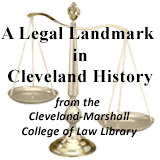Winkelman v. Parma City School District (05-983)
Acronyms & Terms Used
- District - Parma City School District
- FAPE - Free Appropriate Public Education
- IDEA - Individuals with Disabilities Education Act
- IEP - Individualized Education Program
- IHO - Impartial Hearing Officer
- LRE - Least Restrictive Environment
- Pro Se Litigant - A party who represents his or her own interests before the court without being represented by an attorney
- SLRO - State Level Review Officer
- TEACCH - treatment and education of autistic and related communication-handicapped children
- Writ of Certiorari- A writ issued by a superior court (as the Supreme Court) to call up the records of a particular case from an inferior judicial body (as a Court of Appeals). It is one of the two ways to have a case from a U.S. Court of Appeals reviewed by the U.S. Supreme Court.
U.S. Supreme Court
After a five year struggle to ensure Jacob had a FAPE, the Winkelmans turned to the United States Supreme Court seeking their right and the right of their child to continue their fight so that in the future Jacob would have a FAPE as guaranteed to him under the Individuals with Disabilities Education Act. On October 27, 2006, the United States Supreme Court granted the Winkelmans' petition for writ of certiorari, seeking to resolve the split among the circuit courts. The issue before the Court was "whether a nonlawyer parent of a child with a disability may prosecute IDEA actions pro se in federal court." Winkelman v. Parma City Sch. Dist., 550 U.S. 516 (2007). The issue raised in Winkelman had been put before the Supreme Court on two separate occasions to no avail, both attempts at certiorari proved unsuccessful for the parties in Wenger v. Canastota Cent. Sch. Dist., 146 F.3d 123 (2d. Cir. 1998), cert. denied, 526 U.S. 1025 (1999) and Devine v. Indian River Cty. Sch. Bd., 121 F.3d 576 (11th Cir. 1997), cert. denied, 522 U.S. 1110 (1998).
A majority of the justices sided with the Winkelmans and held that parents have both substantive and procedural rights under IDEA; and therefore, nonlawyer parents are permitted to prosecute IDEA claims pro se. Winkelman, 550 U.S. at 1197. The Court, however, declined to address the issue of whether IDEA permits nonlawyer parents to litigate their child's claims pro se. Justice Kennedy delivered the opinion of the Court in which Chief Justice Roberts, and Justices Stevens, Ginsburg, Breyer, and Alito joined. Justice Scalia filed an opinion concurring in judgment in part and dissenting in party in which Justice Thomas joined. The majority's decision reversed the decision of the Sixth Circuit Court of Appeals and abrogated Collinsgru v. Palmyra Bd. of Educ., 161 F.3d 225 (3d Cir. 1998) and Cavanaugh v. Cardinal Local Sch. Dist., 409 F.3d 753 (6th Cir. 2005). As a result of the Court's decision, the case was remanded to the United States Court of Appeals for the Sixth Circuit. Finally, the Sixth Circuit would determine the issue of Jacob's permanent educational placement.
On remand, the United States Sixth Circuit Court of Appeals affirmed the district court's opinion, Winkelman v. Parma Cty. Sch. Dist., 411 F.Supp.2d 722 (N.D. Ohio 2005). The Sixth Circuit declined to write a full opinion because it stated that the district court correctly stated the law and applied it to the facts of the case. See Order No. 05-3886 (Oct. 2, 2008). The Supreme Court declined to further review the issue and denied the Winkelmans' petition for writ of certiorari. See Order No. 08-1089 (June 29, 2009).




